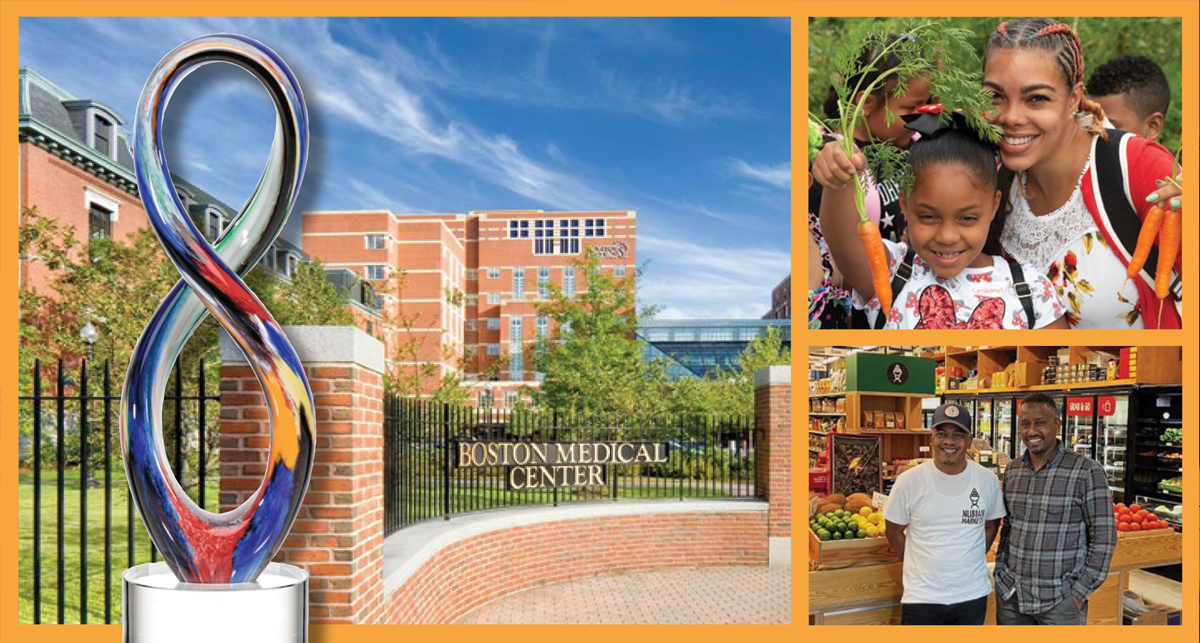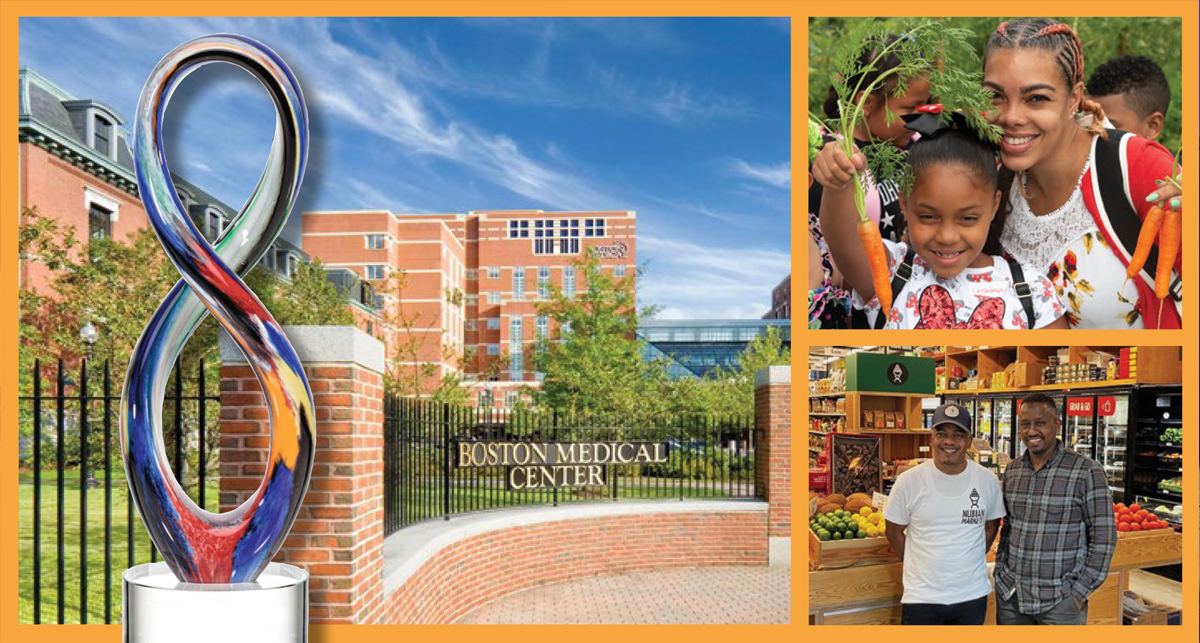
Improving access to high-quality health care — particularly for underserved areas — and developing innovative partnerships with community organizations are critical to transforming the nation’s health system.
The Foster G. McGaw Prize, sponsored by the Baxter International Foundation, the AHA and the AHA’s nonprofit affiliate the Health Research & Educational Trust, was recently awarded to Boston Medical Center (BMC) Health System for its achievements in these and other areas.
The prize is given annually to a health care organization that has shown exceptional commitment to community health, developing innovative partnerships with community organizations to address societal factors influencing health and improving access to high-quality, safe and equitable health care.
This report highlights some of the key drivers of BMC’s success.
1. Set High Expectations
BMC, the largest essential hospital in New England, believes that health disparities are better addressed by challenging low expectations.
Health care leaders, including physicians, often assume that people living in marginalized communities are destined to have poor health outcomes, said Thea James, M.D., BMC’s vice president of mission and associate chief medical officer. She and her colleagues disagree.
In 2021, BMC launched its Health Equity Accelerator, bringing together research, clinical care and community engagement to tackle longstanding racial health disparities in five areas: maternal and child health, infectious disease, behavioral health, chronic conditions, and oncology and end-stage renal disease.
2. Reduce Health Disparities
The accelerator convened a multidisciplinary team to tackle wide disparities in diabetes outcomes for Black, Hispanic and Latino patients compared with non-Hispanic white patients. “Working with more than 70 providers that are engaged in addressing diabetes and equity, we enrolled over 3,000 patients into our health-equity programs and achieved a 50% reduction in diabetes inequity in 2023,” said Petrina Martin Cherry, vice president of community engagement and external affairs.
One winning tactic: providing continuous glucose monitors that capture a comprehensive overview of patients’ blood sugar levels throughout the day. The initiative led to more than one-third of BMC’s Black, Hispanic or Latino patients having reduced their A1c levels by 9% during the program’s first six months, Cherry said.
3. Improve Maternal Health
Similarly, when BMC researchers found that Black female patients were 1.7 times more likely to experience complications during and after delivery than their white counterparts, a multidisciplinary team recognized the need to focus on preeclampsia, which was linked to other problems.
The health system expanded its doula program, developed patient-education videos about preeclampsia and expanded its use of a remote 24-hour hypertension monitoring program.
“We did a lot of things based on what the patients said would have been helpful to them,” James said. “And that has led to a reduction in readmission rates for pregnant women with hypertension.”
4. Expand Access to Healthful Food
BMC has been a leader in the field’s move to helping patients access healthful food since 2001 when it opened one of the first health system-owned food pantries and teaching kitchens in the country. BMC physicians and nutritionists refer individuals at risk of malnutrition, providing them with prescriptions for food that will promote health, facilitate recovery and prevent future illness. In 2022, the food pantry served nearly 68,000 people.
BMC’s rooftop farm, on top of the hospital’s power plant, provides fresh produce for the food pantry, farmers markets and the teaching kitchen, which offers more than 50 classes each month ranging from diabetes self-management to cuisines of the world.
5. Improve Financial Well-Being
BMC universally screens primary care patients for social determinants of health, including education and employment. As an emergency department (ED) physician, James has noticed that when patients have multiple return visits to the ED, often the baseline of their story is economics.
To that end, BMC offers many programs designed to improve the financial well-being of its community members. StreetCred, integrated into pediatric care in 2016, provides free tax preparation services for low- and middle-income families with the goal of helping them receive the Earned Income Tax Credit. To date, the service has helped more than 6,000 families claim more than $14 million in tax refunds.
Moreover, BMC recently funded a job training program for 12 community members, all of whom are now employed by Thermo Fisher Scientific in jobs that pay more than $30 an hour.
Learn More
Read the full 2024 AHA report on other actions taken by BMC and two Foster G. McGaw Award finalists, Englewood (New Jersey) Health and New York-Presbyterian in New York City.







